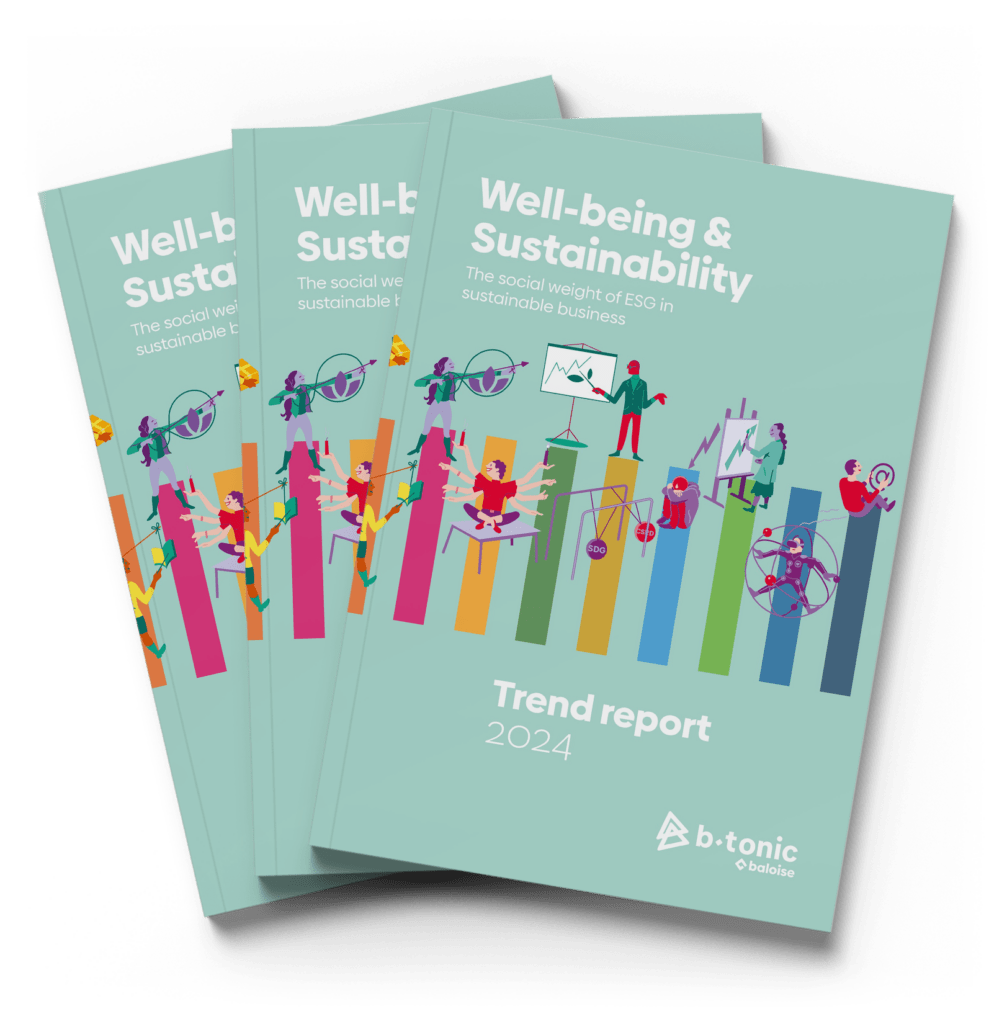Good work goal 6: Balanced work contributes to sustainable success
In this age where work and technology are always within reach, it is becoming increasingly challenging to maintain a healthy work-life balance. Employees often experience constant pressure to always be available, which can jeopardise their well-being and productivity. As a company, it is crucial to actively pursue a healthy work-life balance for your employees.
As the safety and well-being of employees is our number one priority, Antwerp Management School defined the Good work goals in collaboration with B-Tonic. These are the 10 key points of action that should drive every company’s sustainable well-being policy. With this, we want to emphasise that good working conditions are a demonstrable responsibility not only in times of stability and prosperity, but also – and even more so – in times of crisis and recovery.
The Good work goals aspire to a working environment that is safer, healthier, more resilient, more inclusive, happier, more balanced, more sustainable, more supportive, more meaningful and more responsible. By proposing a series of actions in each of these 10 areas, the Good work goals show the path employers can take to ensure a good working environment for their employees.
Practical tips for an ideal balance
Within the Good work goal ‘Balanced work’, we encourage a work environment that supports a healthy balance between work time and non-work time, and relationships inside and outside the workplace. Here we share some practical tips to promote this balance and create a positive work culture.
- Provide flexible working hours and teleworking
Flexible working hours allow employees to adapt their working day to their personal commitments and needs.
- Promote time management and goal orientation
Help your employees develop effective time management skills. Encourage them to set goals for their daily tasks and projects. This helps them prioritise and focus on the most important tasks, allowing them to work faster and more efficiently.
- Encourage digital deconnection outside working hours
It is important that employees have the option to disconnect from digital communications outside working hours. Encourage a culture where employees are not required to respond to work-related messages or e-mails outside working hours, except in case of an emergency. Digital deconnection allows employees to relax and recharge, which is essential for their well-being and resilience.
- Establish an open and supportive work culture
An open and supportive work culture is invaluable in promoting a healthy work-life balance. Encourage open communication and make sure employees feel free to express their concerns about work-life balance. Listen to feedback from employees and take any concerns seriously. By being involved in your employees’ well-being as a company, you build a strong and loyal organisation.

Related SDG's
***
Do you want a work environment that supports a healthy balance between work time and non-work time, and relationships inside and outside the workplace? Request our People Sustainability Scan today and take the first step towards a balanced working environment.





